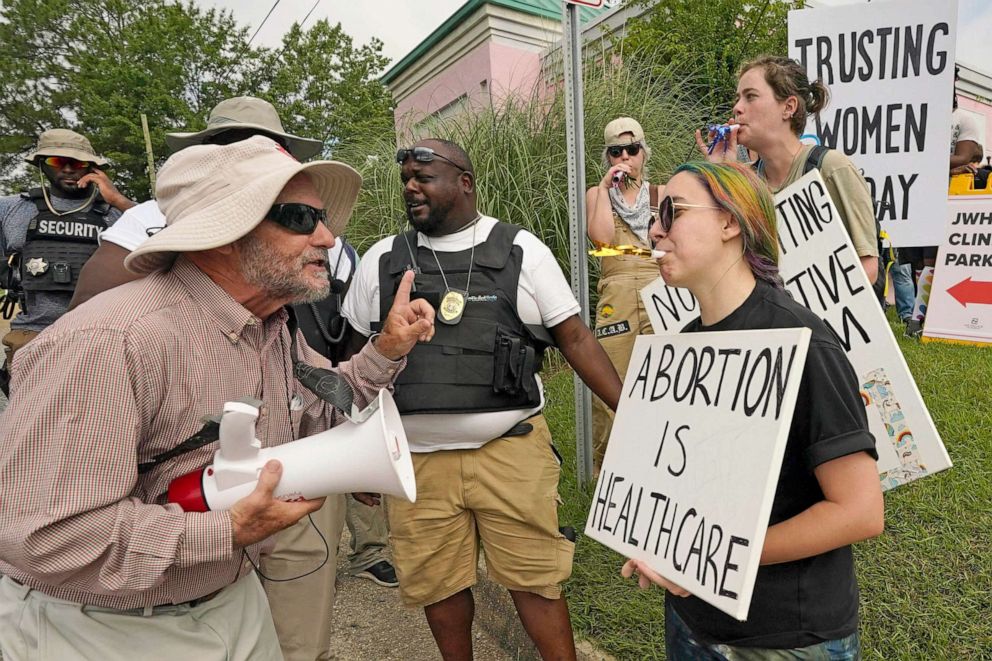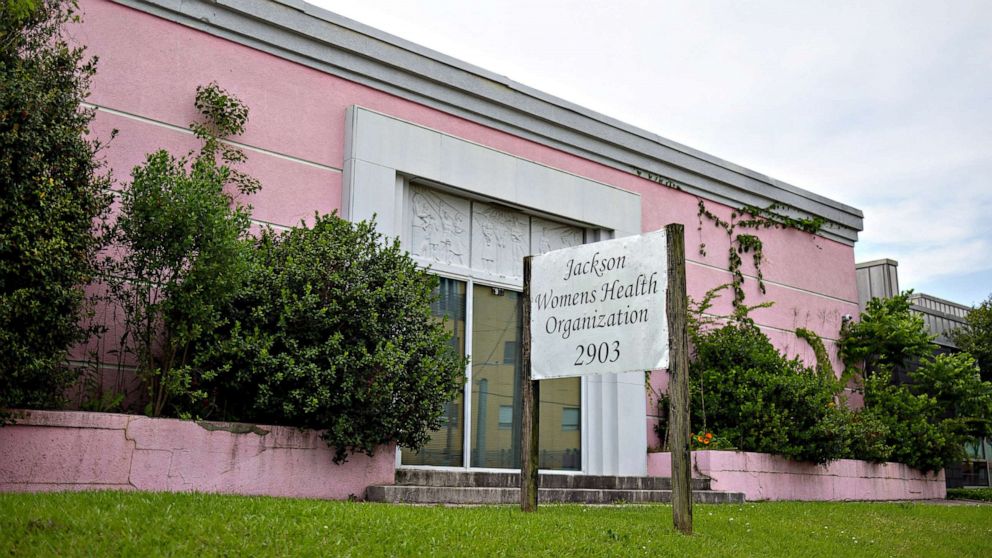Abortion trigger law goes into effect in Mississippi, where the case that overturned Roe v. Wade originated
A so-called trigger law on abortion went into effect Thursday in Mississippi, the state where the case that overturned Roe v. Wade originated.
Under the new law, anyone who performs or attempts to perform an abortion in the state will be charged with a felony -- punishable by up to 10 years in prison.
The only exceptions are to save the mother's life or if the woman is a victim of rape, provided she has reported the crime to law enforcement. There are no exceptions for incest.
Mississippi Gov. Tate Reeves praised the news with a tweet Thursday that read, "Today we wake up in a state where the church doors are open and the abortion clinic's doors are closed. All the Glory to God the Father! Amen!"
The law also means that Jackson Women's Health Organization, the last abortion clinic in Mississippi, shuttered its doors for good.

After the Supreme Court decision, the clinic filed a lawsuit asking a state court to temporarily block the trigger law from going into effect.
However, Judge Debra Halford, special chancellor over the case between Jackson Women's and the state, rejected the request and wrote in her opinion that blocking the ban "would clearly harm the state and its citizens by denying the public interest in enforcement of its laws."
She also added that states have "legitimate interests" in reducing abortion access, including "respect for and preservation of prenatal life at all stages of development" and "the elimination of particularly gruesome or barbaric medical procedures."
One of the attorneys who filed the lawsuit on behalf of Jackson Women's, Hillary Schneller of the Center for Reproductive Rights, called the trigger law going into effect "a grim and surreal day."
"Jackson Women’s Health Organization has been the last abortion clinic in Mississippi for over a decade," she said in a statement to ABC News. "They have been helping people from all across the state, and surrounding states, for years. Their closure will have a catastrophic impact on the entire region."
She continued, "People who need abortions are panicking right now, trying to figure out where they will go. Many people cannot afford to travel multiple states away, especially in Mississippi, which is one of the poorest states in the country. The courts have let this happen, and it is absolutely cruel and inhumane.”
At least two district attorneys in Mississippi have previously said they will not prosecute anybody in the state who seeks an abortion or anyone who provides or helps someone get an abortion.
Hinds County District Attorney Jody Owens and District Attorney Shameca Collins for the 6th judicial district -- which includes Adams, Amite, Franklin and Wilkinson counties -- joined 90 other district attorneys, state attorneys and state attorney generals from more than 30 states who vowed not to use their resources to criminalize abortion.
"We stand together in our firm belief that prosecutors have a responsibility to refrain from using limited criminal legal system resources to criminalize personal medical decisions," the statement, released June 24, read. "As such, we decline to use our offices' resources to criminalize reproductive health decisions and commit to exercise our well settled discretion and refrain from prosecuting those who seek, provide, or support abortions."
Mississippi is one of at least 13 states that have ceased nearly all abortion services.
The Magnolia State, in addition to Alabama, Arkansas, Missouri, Oklahoma, South Dakota and Texas, have near-total bans on abortion while abortion providers in Arizona, West Virginia, Wisconsin have suspended services due to confusion with the law.
What's more, Ohio, South Carolina and Tennessee currently have six-week bans in place.
Bans were also issued in Kentucky, Louisiana and Utah, but the bans have been temporarily blocked by courts and hearings are pending.




